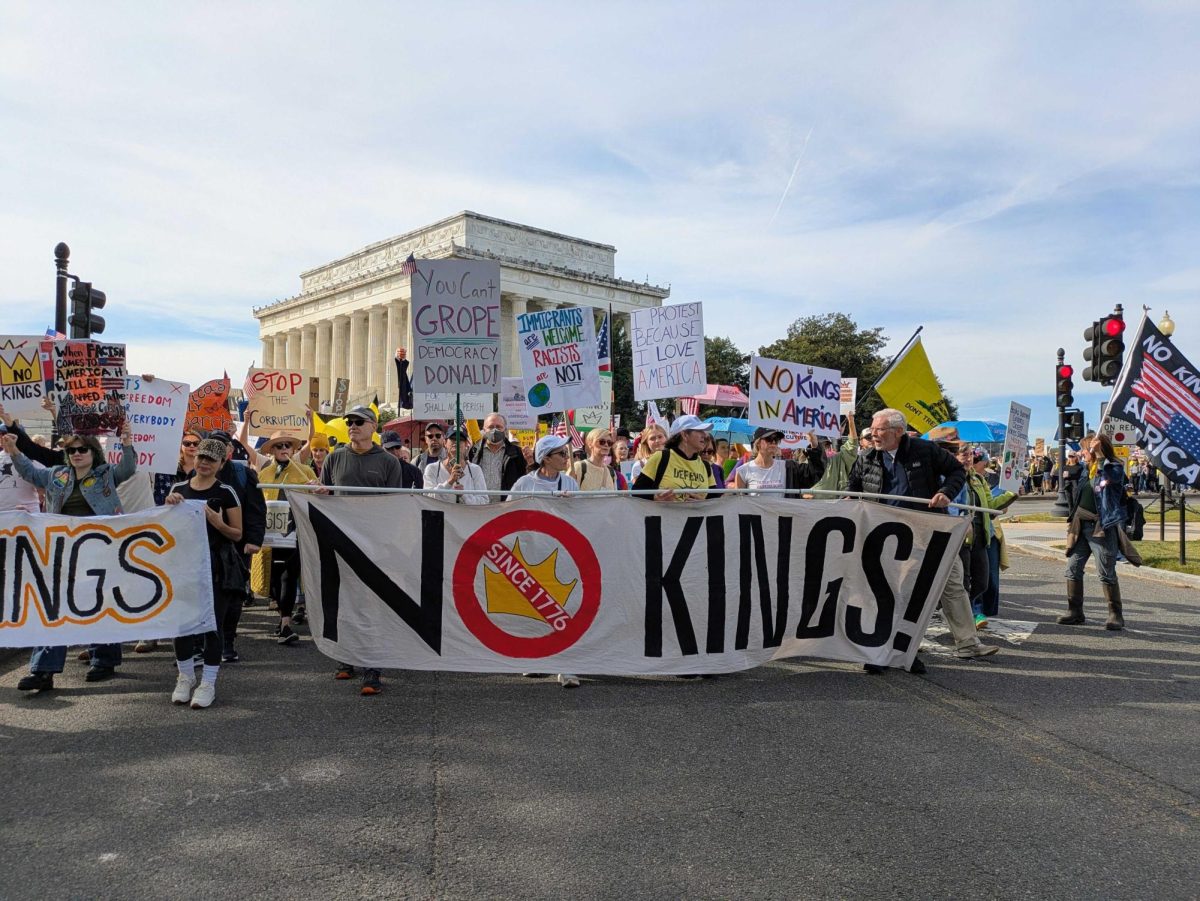Pop-star reinvents and reclaims her ‘Fearless’ album
TRIBUNE NEWS SERVICE Swift holds Grammy for her album “Folklore,” proving her sound is timeless.
April 13, 2021
Last Friday, country-pop singer Taylor Swift released a rerecorded version of her album “Fearless,” originally released in 2008. The original “Fearless” is a fan favorite, and the rerecorded version did not disappoint.
Swift rerecorded the album to reclaim it from Scooter Braun, with whom she signed a record deal and whom she claims bullied her for years. The deal gave the rights, ownership and control to Braun, and Swift set out to rerecord the songs that he owned, pointedly adding “(Taylor’s Version)” to the album title and every song on it.
“When that man says ‘Music has value,” he means its value is beholden to men who had no part in creating it,” Swift said in an Instagram post referencing Braun.
However, hearing now 31-year-old Swift voice tracks that she originally recorded 13 years ago, when she was 18, elicited a strong sense of nostalgia. When I listened to the new, more grown-up versions of songs I loved in my childhood, I felt a sense of coming-of-age, like I had grown up with this album the same way Swift did.
When I was young, these songs held less weight than they hold now while listening to them in my adulthood. The feelings and problems Swift sings about are now more relatable to me, and the lyrics resonate with me more than they did in my youth.
The first track on the album is the title track, “Fearless.” Listening to Swift sing about love that made her feel fearless brings back remnants of feelings I once held in my heart, while simultaneously characterizing what I know I deserve to feel.
“Fifteen” is one of the most wistful songs on the new version of the album. As opposed to when I first listened to the original version, listening to the rerecorded version brings back memories of when I was 15, and the experiences that are so formative in a young teenager’s life and emotional development.
The tone of “Love Story” is much different from that of the original version. Swift sings more maturely, suggesting that she is singing this song less from a place of wishful longing and more from a place of reminiscence on past love stories.
“Hey Stephen” draws out a completely different vibe than the original version. The new version produces an acoustic and relaxed emanation, comparable to the feeling of being at the beach on a summer day. The original version was much more bubbly and felt almost childish.
The sorrowful tone of “White Horse” is similar to the tone of the original song, but listening to this song as an adult, it is more personal. This song evokes one of the most profound pieces of evidence of growing up — that I have now experienced the emotions and undergone some of the heartbreaks that come with maturation.
“You Belong With Me” emits nearly the same tone that it did when it was released 13 years ago — lively, upbeat and feel-good. “Breathe” featuring Colbie Caillat also emits the same energy as the original version; however, this song emanates wishful longing.
Similarly, the rerecorded versions of “Tell Me Why,” “Jump Then Fall,” “Untouchable,” “Come In With the Rain,” “Superstar,” “The Other Side of the Door,” “Today Was a Fairytale” and “You’re Not Sorry” sound almost exactly the same as the original versions do, quite a feat for an artist who has undoubtedly changed since 2008 when the songs were released.
“The Way I Loved You” evoked nearly the same response as “Fearless.” The new version of the song sounds more mature and causes me to remember past times and relationships that I have experienced, something I could not do when I first listened to the song when I was younger.
The new version of “Forever & Always” has a bit more of a “pop” sound than the original version does, giving it a more modern tone. On the other hand, “The Best Day” has more of an acoustic sound than its original counterpart.
However, “Forever & Always (Piano Version)” sounds very similar to the original version.
One of the most powerful songs on the album is “Change,” especially in the context of today’s world. The original song seems to have foreshadowed the strong presence of activism in our generation today. It’s almost as if Swift knew when she first wrote this piece that our generation would be one that fights for change. The instrumentals in the rerecorded version are much more powerful than those in the original version, seemingly a metaphor for the changes that have taken place in the world since 2008.
There are also multiple never-before-heard songs on the rerecorded version of “Fearless” that Swift pulled out of the vault in an effort to “stick it” to Braun. “We Were Happy,” “Mr. Perfectly Fine,” “You All Over Me,” “That’s When,” “Don’t You” and “Bye Bye Baby” all sound oddly comforting and display elements of the “Old Taylor Swift” that Swift’s fans often reminisce over.
Swift’s decision not to reinvent the wheel with the rerecorded version of “Fearless” was wise. Despite the album coming to as a response to a bad record deal, “Fearless (Taylor’s Version)” is nostalgic in a time where those in the main demographic of Swift’s fans are pining for this nostalgia more than ever.
ANNA MALESIEWSKI
[email protected]






